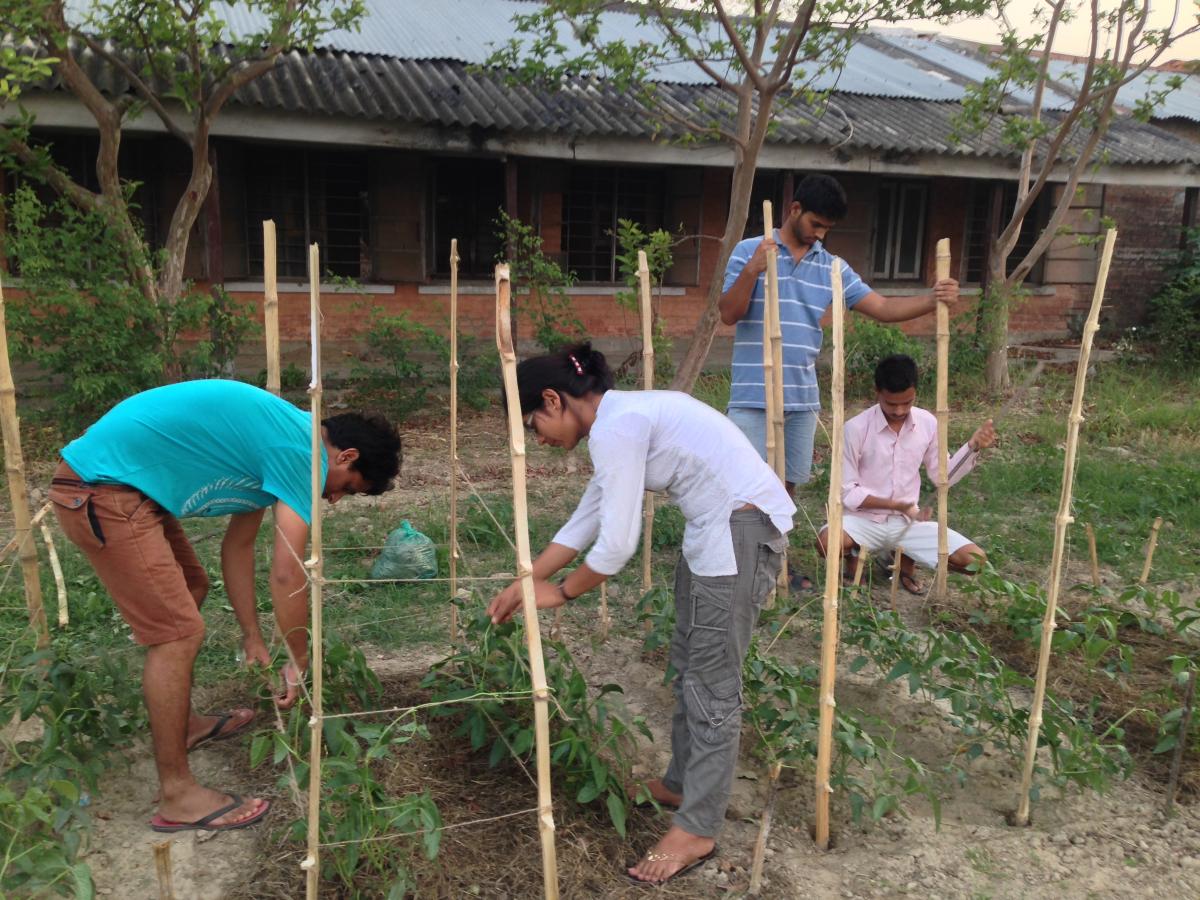Why many youngsters are not into agriculture in Nepal?
 Once I was with my friends and we met another group of acquaintances. During the conversation, we were asked what we were pursuing as undergraduate studies. One of them said that he was enrolled as a Mechanical Engineer in U.S.A., another answered by saying that he is a BBA student in U.S.A. too. I remember that the third one commented that he is an IT student in Finland, while the last one was proud of being a medical student at the Institute of Medicine (IOM) of Nepal. Obviously, they all were praised for their efforts and toil to get there.
Once I was with my friends and we met another group of acquaintances. During the conversation, we were asked what we were pursuing as undergraduate studies. One of them said that he was enrolled as a Mechanical Engineer in U.S.A., another answered by saying that he is a BBA student in U.S.A. too. I remember that the third one commented that he is an IT student in Finland, while the last one was proud of being a medical student at the Institute of Medicine (IOM) of Nepal. Obviously, they all were praised for their efforts and toil to get there.
Then my turn arrived and I replied that I am an agriculture student at the Institute of Agriculture and Animal Science of Nepal. The general reaction didn’t take long to come out. All of a sudden, the expression of the second group changed. Only one of them reacted by asking why I hadn’s tried to study abroad or something more relevant like Medicine rather than being an agriculture student. Unfortunately at that moment I was new in the field and I hadn’t the same interest as I do have now for farming issues so I simply decided not to answer him.
Elderly demotivate young generations
Three years have passed and I still remember those questions and that incident, and now I realise why agriculture is not progressing in Nepal. Farming it’s seen as a profession of illiterates, in which the “poor” farmer should be concerned only about farming. Smart minds should better go for something more ambitious and challenging.
Besides, agriculture is seen as a profession of dust and soil, dung and rotten smelly compost, therefore most of young people prefer not to get involved in the field. At school, since we are kids until we enroll for any specific area, we are told either to be a doctor, an engineer or a pilot. Even during the festivals we are blessed to become so. It would be very surprising if someone blessed their children to be agriculture scientists in the future.
When we enroll for any undergraduate program, we usually are between 18-19 years old. This is a crucial age when any sorts of motivation could change our minds; hence if a youngster tries to study agriculture is very difficult he/she will succeed because particularly elder people will advise him/her to choose a more prestigious degree.
Changing the mentality is the first step
Nepal, where 65.6% of the population are engaged in agriculture and 35.3% national GDP comes from the agriculture and forestry sectors, still have problems of starvation in some regions that cannot meet the food demand of the country. To establish self- sufficiency in the country, first people’s acuity regarding agriculture should be changed. Even though agriculture studies are emerging nowadays, they lack effective methodology and practical assessments.
The world is speaking for sustainable development as a reaction to climate change, and while we focus on sustainable environment and energy conservation, many yet don’t figure out that agriculture constitutes almost the solution to all of environmental issues. The worrying point is that there few agriculturists due to people's perception regarding agriculture during the past years. Despite the popular say that states that strong will power is enough to change things, I would highlight that having a good perception towards farming first could be even more important in order to engage the youth in agricultural development.
Picture credit: Youth in agriculture, by Santosh Rijal
Related Posts
Comments
By accepting you will be accessing a service provided by a third-party external to https://archive.ypard.net/

